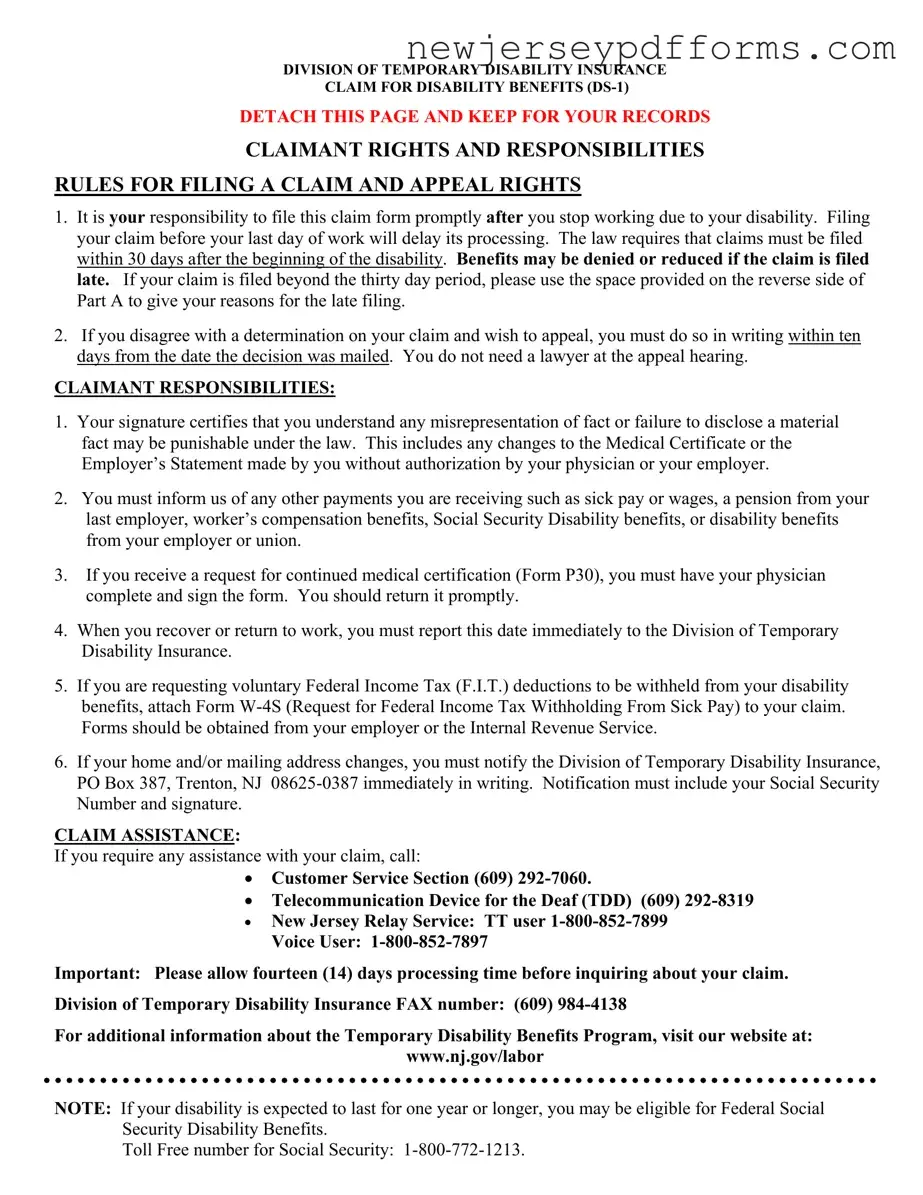What is the New Jersey Temporary Disability form (DS-1)?
The New Jersey Temporary Disability form, known as DS-1, is used to apply for disability benefits when you are unable to work due to a medical condition. This form must be completed and submitted promptly after you stop working to ensure timely processing of your claim.
How do I file the Temporary Disability claim?
To file your claim, complete both sides of the DS-1 form. Ensure that you fill out Part A and A1 yourself. Your doctor must complete Part B, and your last employer needs to fill out Part C. It's crucial to send all parts of the application together to avoid any delays. You can mail or fax the form to the Division of Temporary Disability Insurance at the address provided on the form.
What happens if I file my claim late?
If you file your claim more than 30 days after your disability begins, your benefits may be denied or reduced. If you miss this deadline, you can explain the reasons for the late filing on the form. It’s essential to act quickly to protect your eligibility for benefits.
Can I appeal a claim decision?
Yes, if you disagree with the decision made on your claim, you can appeal. You must submit your appeal in writing within ten days of receiving the decision. You don’t need a lawyer for the appeal hearing, but it's important to provide any necessary information to support your case.
What if my address changes?
If you move, you must notify the Division of Temporary Disability Insurance immediately in writing. Include your Social Security Number and signature in your notification. This helps ensure that you receive all communications regarding your claim without interruption.
What responsibilities do I have as a claimant?
You have several responsibilities when filing a claim. You must accurately complete the form, inform the Division of any other benefits you are receiving, and notify them when you return to work or recover from your disability. Additionally, if requested, you must have your physician complete and return any medical certification forms promptly.
How can I get assistance with my claim?
If you need help with your claim, you can call the Customer Service Section at (609) 292-7060. For those who are hearing impaired, a TDD service is available at (609) 292-8319. Remember to allow at least 14 days for processing before inquiring about your claim status.
What should I do if I have received other disability benefits?
You must disclose any other disability benefits you are receiving, such as sick pay, worker’s compensation, or Social Security Disability benefits. This information is crucial as it may affect the amount of your temporary disability benefits.
Is there a tax withholding option for my benefits?
If you want federal income tax to be withheld from your disability benefits, you need to attach Form W-4S to your claim. This form can be obtained from your employer or the IRS. It's a good idea to consider this option to avoid any surprises during tax season.

